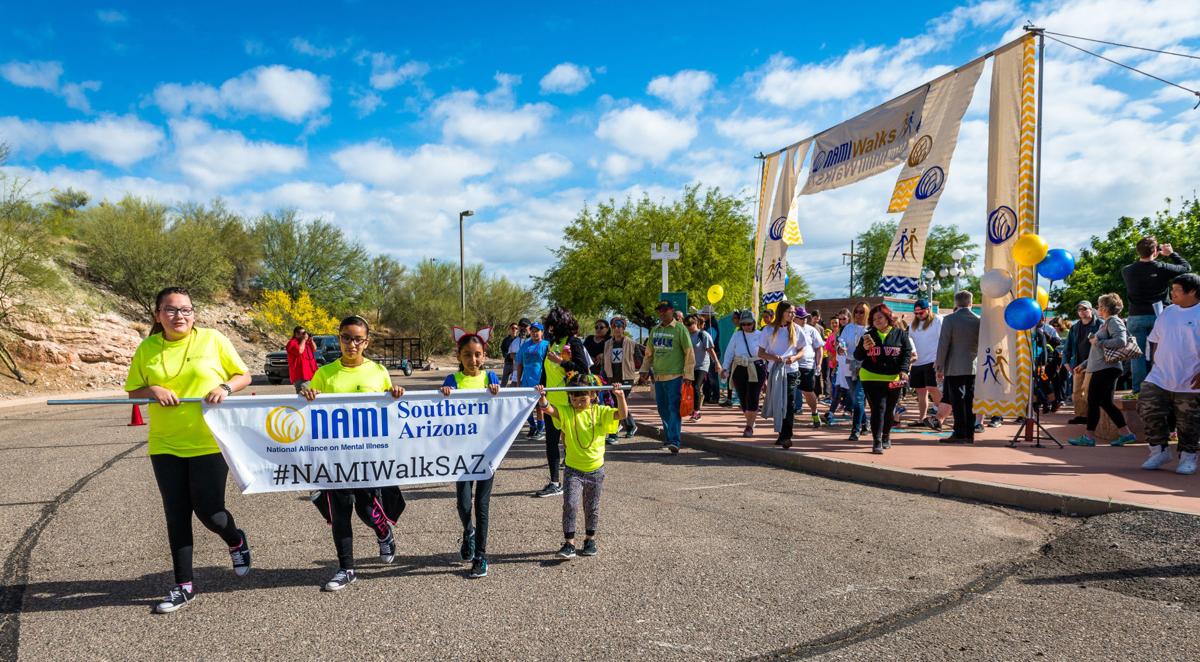One in five youth and adults experience a mental illness in a given year.
For volunteers with the National Alliance on Mental Illness Southern Arizona, that statistic is more than a number: It is a call to action to educate people and end the stigma associated with the disease.
“Most people don’t understand mental illness. Most people don’t realize it is a physical illness no different than heart disease or diabetes, but the organ affected is the brain,” said Marsi Quigley, vice president of the board of directors for NAMI Southern Arizona. “It is not anyone’s fault and it is treatable, and the sooner you get treatment, the better. We are trying to reduce the stigma surrounding mental illness because that is one of the reasons that many people don’t get help.”
Quigley also volunteers with the organization’s signature fundraiser, NAMIWalks Southern Arizona, and provides outreach by visiting middle schools and high schools to teach a class called Ending the Silence.
Quigley believes educating people about the signs and symptoms of mental illness and sparking conversations is key to changing society’s perspective. Ending the Silence is presented by a trained team that includes a young adult living in recovery with a diagnosable mental health condition, and it provides students with a take-away list of symptoms as well as resources for programs, services and support.
“I personally think that if we try to educate kids, they might go home and educate their parents, who often need education also. Parents need to understand that it is OK if they have a kid who has a problem and they need to do something about it,” said Quigley, who knew nothing about mental illness until a family member was diagnosed about six years ago and a friend told her about NAMI.
NAMI fills a unique niche in the community with free education and support services, said Christina Bickelmann, communications and events director for NAMI Southern Arizona. In addition to Ending the Silence, programs include Family-to-Family, a 12-week educational course for family and friends of those living with mental illness; and NAMI Basics, a course for parents and caregivers of a child with mental illness. The grassroots nonprofit also offers other advocacy, resources and support.
“This is our 35th year serving the Tucson community and we have become kind of a landmark. But we want more people to become aware of us and use our services, since, unlike most providers, we have services for family members. Most providers help the person with mental illness and there isn’t a lot for family members, even though family are usually the ones providing support for the person with mental illness,” Bickelmann said.
In spite of the growing need for services, Bickelmann said federal Medicaid funds dispersed through the state to NAMI Southern Arizona have sustained significant cuts over the past several years: Revenue in 2013 was $660,000; this year it is $270,000. Last fall, NAMI was forced to cut its staff by 50 percent.
“These shortfalls mean that NAMIWalks Southern Arizona is even more important than it has ever been. As of right now, we have set a goal of $150,000 to help cover the costs of programs we offer at no cost to participants,” Bickelmann said.
Quigley, who was the top fundraiser for NAMIWalks Southern Arizona last year, said the lack of funds for mental-health care is atrocious. She believes it is her responsibility to do all that she can to raise funds to continue to educate youth and adults about issues surrounding mental illness.
“Even if I help one person by teaching these classes, it makes it all worth it,” Quigley said.





